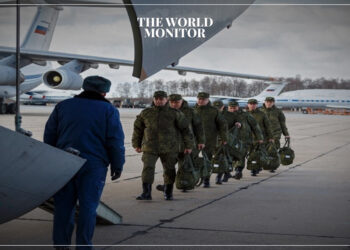The wife of Sudanese man Mohamed Al-Junaid, who is battling cancer, urgently needs radiation therapy.
However, as war ravages Sudan, destroying its infrastructure and healthcare facilities, she now faces a daunting 1,000-kilometer journey to the only hospital offering this care.
From the eastern state of Al-Qadarif, where they sought refuge from the conflict, the 65-year-old Al-Junaid told AFP, “Even if we make it to Merowe (in the north), we will have to wait our turn for this care.”
Since April 15 of last year, Sudan has been engulfed in a brutal conflict between the regular armed forces led by Abdel Fattah al-Burhan and the Rapid Support Forces (RSF) headed by Mohamed Hamdan Dagalo. This war has precipitated a severe humanitarian crisis.
The conflict has severely damaged infrastructure, with 70% of the country’s health facilities now out of service, according to United Nations statistics.
Christian Lindmeier, spokesperson for the World Health Organization, stated, “Only 20 to 30% of the health facilities in the country remain operational… and they are working at minimal capacity.” He also highlighted that medical supplies “meet only 25% of the needs.”
Hundreds of thousands of families have flocked to Al-Qadarif, fleeing war-affected states and facing shortages of food, drinking water, and healthcare facilities.
Cancer patients wait their turn at the “Al-Sharq” Oncology Center, the only one available. However, this centre does not offer radiation therapy, forcing patients to seek treatment at Merowe Hospital in the north, approximately 1,000 kilometres from Al-Qadarif.
Al-Junaid’s wife was receiving treatment at Wad Madani Hospital in Al-Jazirah State, central Sudan, before it was shut down due to the fighting, prompting their escape to Al-Qadarif.
The lengthy journey between states, compounded by numerous security checkpoints, led the driver willing to take Al-Junaid and his wife to Merowe to demand $4,000—a sum Al-Junaid could not afford, cancelling the trip.
The war has shuttered major oncology centres in Khartoum and Wad Madani, the capital of Al-Jazirah State. Since then, Al-Qadarif’s centre has been overwhelmed with cancer patients despite its limited capacity.
The centre has only 27 beds but “needs at least 60,” according to its director, Moatasim Morsi, who spoke to AFP.
“Last year, we received around 900 new patients,” Morsi said, compared to “300 or 400 patients” in previous years.
In just the first quarter of 2024, the centre admitted 366 patients. Despite some shortages exacerbated by the ongoing war, Morsi assured that medicines are still largely available.






